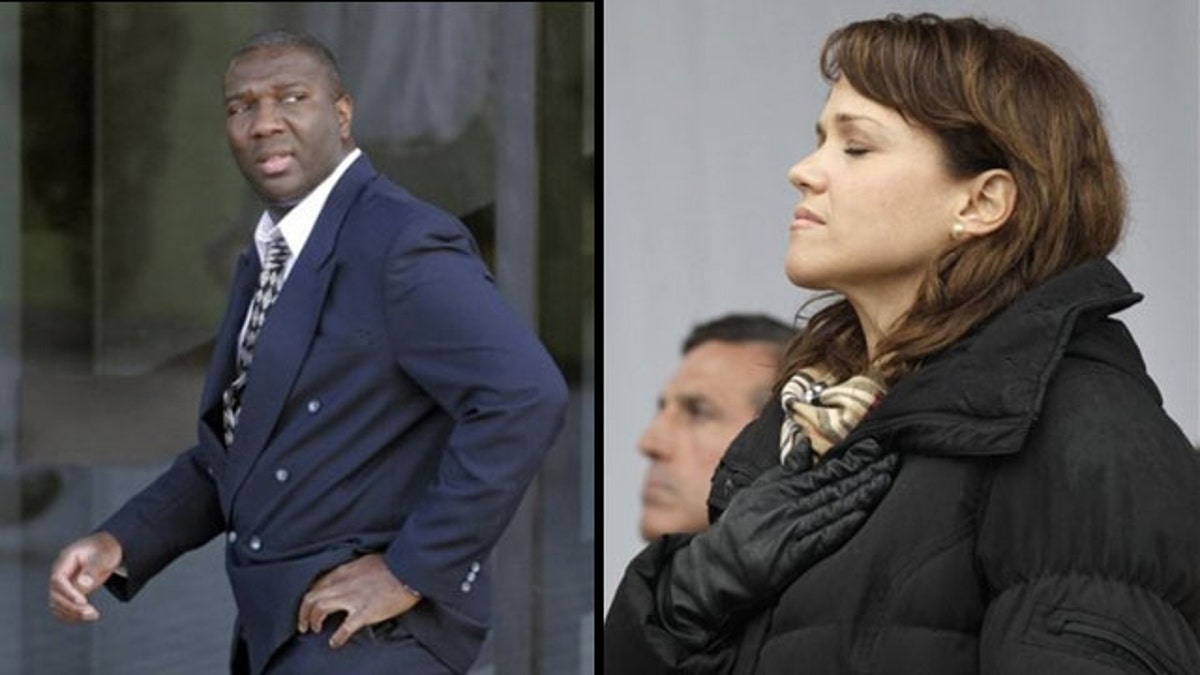
Alvin Greene and Christine O'Donnell could have benefited from a new service that offers background checks to political candidates, the founder says. (AP)
How can you tell when political candidates are lying about their background? Many voters would say, when their lips are moving.
But a new service called CandidateCheck is trying to turn that that sentiment on its head by offering free background checks to all 270 registered candidates running for New Jersey state office this year.
The background checks will include searches that date back 10 years on criminal, civil and employment records, examination of military records, verification of diplomas and professional licenses and searches of national sex-offender registries. Candidates authorize the background check and can review and dispute the results of the findings before they are released to the public.
"What we're offering to candidates is an opportunity to show voters, donors, the parties and other interest groups that they are who they say they are," founder David Doud told FoxNews.com.
Doud is test-driving the service in New Jersey, the first state holding legislative primaries this year, in June. He plans to offer the service to other states with primaries coming up: Mississippi (August), Virginia (August) and Louisiana (October). But it's unlikely the service will be free to candidates in those states, Doud said. The service typically costs nearly $300.
"I'm underwriting New Jersey to launch the business," he said. "But I can't underwrite all of the candidates at all levels of government."
Candidates who use the service can boast that an impartial third-party source has verified that all their stated accomplishments and credentials are authentic -- a good housekeeping seal of approval for politics. Voters can see a summary report of any candidate who completes the background check on the website.
It's a service that Doud says could have benefited Alvin Greene in South Carolina and Tea Party darling Christine O'Donnell in Delaware.
Days after the inexperienced and party outsider Greene shocked the political world by winning the Democratic primary for Senate, news broke that he was facing felony obscenity charges. O'Donnell, who won the Republican primary for Senate, had to deal with the fallout over disclosures that a mortgage company had obtained a judgment against here for $90,000 and that the IRS had filed a lien against her for $11,000 in back taxes and penalties.
Both were soundly defeated in the general election.
Doud hatched the idea to launch the service after his experience as a two-time political candidate in Washington state, where potentially damaging information on his two opponents didn't come to light until the very end of the races.
In his 2004 bid for state legislator, his Republican primary opponent, who ran on fiscal issues, had filed for Chapter 7 bankruptcy – a revelation that didn't emerge until after Doud narrowly lost the race and one that Democrats used to defeat the GOP nominee by a wide margin.
In his 2009 race for the port of Seattle, he discovered and revealed that his opponent had a tax lien for taking too much unemployment insurance. But Doud says by then, it was too late.
"By that time, everyone had made up their minds," he said. "And so it didn't make much of a difference. And I looked bad doing it."
But those defeats led him to launch CandidateCheck.
"Those experiences made a big impact on me," he said. "We live in the age of information. Why is this not part of the consideration for voters early on when they're not in an October surprise frame-of-mind?"
But some election observers aren't yet sold on the service.
"It's a neat idea, especially in primaries," said Bruce Larson, a professor of political science at Gettysburg College and an expert on American politics. He said the traditional low turnouts in primaries might be a result of not enough information on the candidates.
But he added, "People who do vote in primaries, especially closed primaries, these folks tend to go to information sources that reinforce what they think in the first place. Primary voters don't strike me in a lot of cases as seeking objective information."
He also rejected the notion that this service could become the next Carfax, a website that offers detailed vehicle history to prospective buyers.
"With Carfax, you're dumping your money on the line. But in an election, one informed voter won't have much impact on the collective outcome," he said. "I think voters tend to do more research when they're the sole decision maker."




